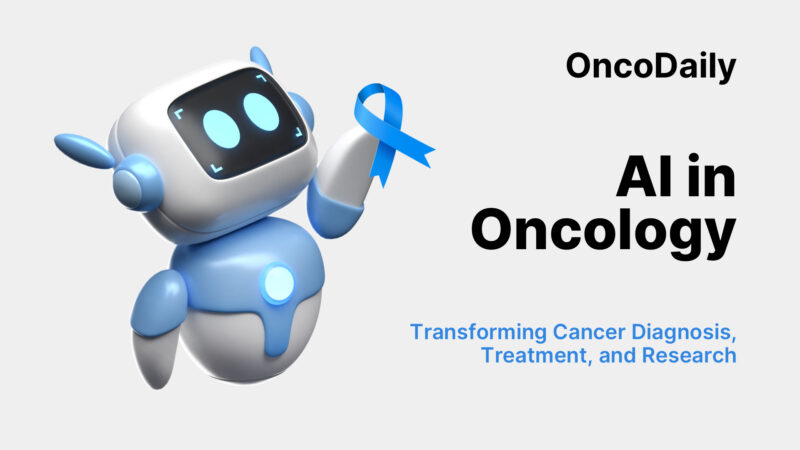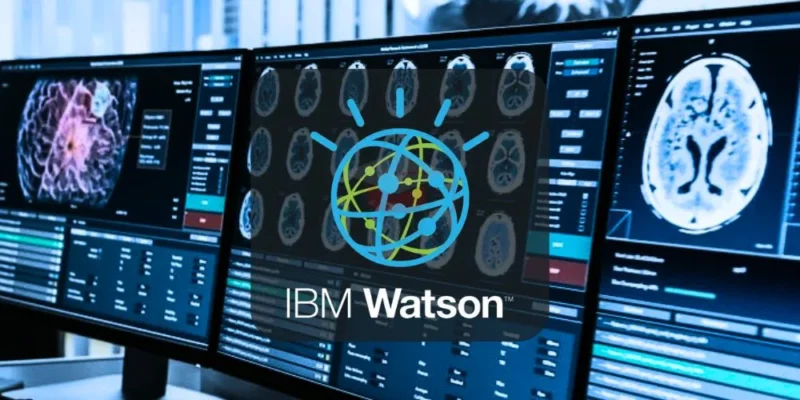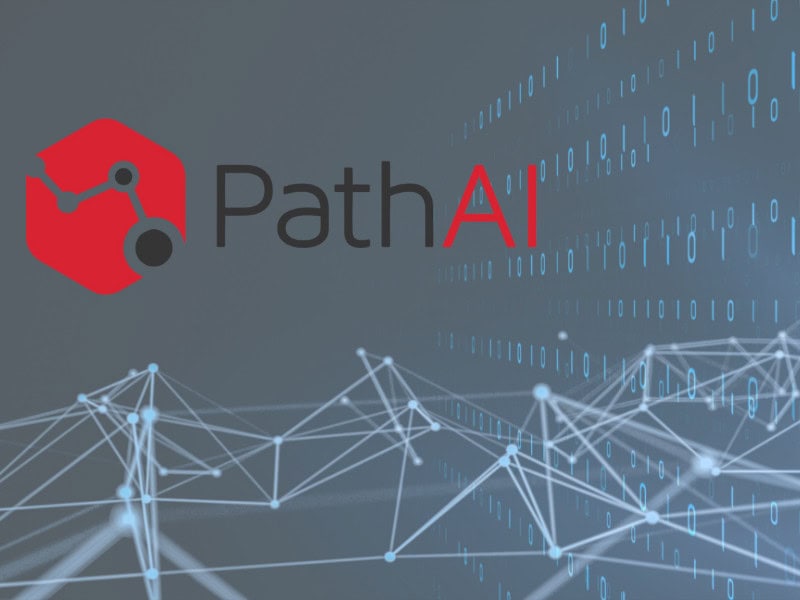The integration of artificial intelligence (AI) in healthcare is rapidly advancing, transforming various aspects of medical oncology. AI tools, from diagnostic support to personalized treatment recommendations, are becoming invaluable assets for oncologists. These tools help improve diagnostic accuracy, speed up treatment planning, and tailor treatments to the individual patient, advancing the field of cancer care. In this article, we explore the top five AI tools for medical oncologists that are revolutionizing oncology practice.

You Can Read About AI in Oncology on OncoDaily
IBM Watson for Oncology
IBM Watson for Oncology is one of the leading AI tools in the field of oncology, offering oncologists an advanced decision support system designed to assist in personalized cancer treatment. Powered by artificial intelligence (AI) and natural language processing (NLP), Watson analyzes vast amounts of medical literature, clinical trial data, and patient records to help oncologists make evidence-based decisions for individual patients.
Watson for Oncology is particularly renowned for its ability to rapidly process complex data sets, compare clinical guidelines, and provide actionable insights on treatment options, ensuring that oncologists have access to the most current and comprehensive evidence available. This AI system is tailored to assist in complex cancer care, offering real-time decision-making support and reducing the potential for human error in diagnosis and treatment planning.
Key Features and Functionality of IBM Watson for Oncology
Cognitive Computing for Personalized Treatment Plans: Watson for Oncology utilizes cognitive computing to sift through vast amounts of medical literature, clinical trials, and treatment records. It then processes this data to generate personalized treatment plans for cancer patients based on their unique clinical profiles. By analyzing various treatment outcomes, genetic data, and the latest research, Watson recommends individualized therapies, giving oncologists access to data that would be impossible to process manually.
Comprehensive Database of Clinical Trials: One of the standout features of Watson for Oncology is its ability to match patients with appropriate clinical trials. By constantly reviewing ongoing and past clinical trials, Watson can provide oncologists with information on trials that may benefit patients based on their genetic makeup, cancer type, and treatment history. This matching system opens up new therapeutic possibilities for patients who may not have been considered for these trials otherwise.
Machine Learning and AI in Predictive Analytics: Watson’s ability to predict treatment responses is based on advanced machine learning algorithms. By comparing data on similar patient profiles and outcomes, Watson for Oncology offers predictions on how a specific patient might respond to particular treatments. This predictive capability allows oncologists to make more informed decisions, even in cases where the cancer type is rare or the response to treatment is uncertain.
Integration with Electronic Health Records (EHRs): Watson seamlessly integrates with hospital electronic health records (EHRs), allowing oncologists to input real-time patient data directly into the system. This integration improves the speed at which Watson can process patient information and provide treatment recommendations. It also ensures that the system stays updated with the latest patient health status, eliminating the need for separate data entry and reducing the risk of errors.
Evidence-Based Decision Support: IBM Watson for Oncology pulls from a comprehensive knowledge database that includes:
- Peer-reviewed literature
- Clinical guidelines
- Published clinical trial data
- Oncology databases
By continuously updating this knowledge base, Watson ensures that oncologists always have access to the most up-to-date, evidence-based treatment recommendations, ultimately improving the quality of care for patients.

Photo: Depositphotos
Impact of IBM Watson for Oncology in Clinical Practice
Enhancing Treatment Precision and Personalized Care: Watson for Oncology significantly contributes to precision medicine by offering personalized treatment recommendations tailored to each patient’s genetic makeup and cancer type. This allows for a shift from a one-size-fits-all approach to a more customized treatment plan. In particular, Watson’s ability to process genetic mutations and understand complex biological data helps oncologists identify the most effective therapies, leading to better patient outcomes.
Reducing Diagnostic Errors and Enhancing Decision-Making: Cancer treatment is complex and often requires timely, well-informed decisions. IBM Watson for Oncology acts as a powerful decision support tool, helping oncologists avoid common pitfalls, such as missing treatment options or not considering relevant clinical trial data. By processing data quickly and presenting clinicians with the most relevant options, Watson reduces the likelihood of diagnostic errors and ensures that oncologists are making decisions backed by comprehensive data.
Faster Treatment Planning: Time is critical in cancer treatment. Watson’s AI-powered platform helps oncologists speed up the decision-making process. Whether it’s suggesting the best treatment options or finding the most suitable clinical trial for a patient, Watson’s quick analysis of complex data sets reduces the time spent on research and increases the efficiency of treatment planning.
Improved Access to Clinical Trials: Watson for Oncology has helped improve patient access to clinical trials, a crucial component of modern cancer care. By identifying patients who meet specific trial criteria, Watson ensures that eligible patients are connected with clinical research opportunities, which may offer cutting-edge therapies not yet available through conventional treatments.
Success Stories and Clinical Outcomes: Numerous clinical studies have evaluated the effectiveness of IBM Watson for Oncology in real-world settings, particularly in how it assists oncologists with making better treatment decisions. For instance, a study in India demonstrated that Watson’s recommendations aligned with oncologists’ decisions in 93% of breast cancer cases, with similar high levels of concordance in colorectal and lung cancers (Seneviratne et al., 2019).
These results underscore Watson’s efficacy in analyzing complex clinical data and providing oncologists with evidence-based recommendations that lead to better outcomes. In some cases, Watson has even suggested treatments that were previously not considered, showing its potential for innovative cancer care.
PathAI
PathAI is a leading artificial intelligence (AI)-driven platform designed to assist pathologists in analyzing medical images, particularly pathology slides, with exceptional accuracy. Pathology is a critical component of cancer diagnosis, and the task of examining thousands of tissue samples under a microscope can be both labor-intensive and prone to human error. PathAI addresses these challenges by leveraging deep learning algorithms to automate the analysis process, helping pathologists identify cancerous cells with greater precision.
The platform applies cutting-edge deep learning and machine learning models to pathology images, enabling it to detect and classify abnormalities in tissue samples that may not be immediately apparent to the human eye. By automating image analysis, PathAI reduces diagnostic variability, ensures a higher level of accuracy, and ultimately helps oncologists make more informed treatment decisions.
Key Features and Functionality of PathAI
Deep Learning for Image Analysis: PathAI uses deep convolutional neural networks (CNNs) to analyze digital pathology slides. These models are trained on vast datasets of annotated pathology images, which allow the platform to detect minute details in tissue samples. This includes distinguishing cancerous cells from normal ones, identifying the type and stage of the tumor, and assessing the degree of malignancy.
The platform is particularly adept at identifying tumor heterogeneity, a critical factor in cancer progression. Tumors can consist of different subpopulations of cells with varying genetic and phenotypic properties, which complicates treatment. PathAI can detect this variability in tumors, enabling oncologists to choose more targeted therapies.
Automation of Routine Diagnostic Tasks: PathAI automates many routine tasks in pathology, such as quantifying cancer cells, identifying tumor boundaries, and classifying various types of cancer. This automation significantly speeds up the diagnostic workflow and reduces the likelihood of errors, such as misclassification of cells or failure to detect small malignant areas in a tissue sample.
With PathAI’s assistance, pathologists can focus their expertise on the most complex cases, rather than spending time on repetitive tasks. This results in greater efficiency and allows for faster diagnosis, ultimately improving the patient care process.
Accuracy and Reliability: The accuracy of PathAI in diagnosing various cancers has been shown to be on par with, or even exceed, that of human pathologists. Studies have demonstrated that the platform performs at high sensitivity and specificity, detecting cancer at early stages and identifying subtle signs that might be missed by human examiners. This makes PathAI an invaluable tool in early cancer detection and precision medicine (Dhanasekaran et al., 2019).
Additionally, PathAI’s algorithms can continuously learn and adapt from new data, improving over time. This makes it an evolving tool that enhances its diagnostic capabilities with each new case analyzed.
Facilitating Collaboration Between Pathologists and Oncologists: PathAI integrates seamlessly with existing pathology workflows and electronic health record (EHR) systems. By providing detailed, AI-generated reports alongside the pathologist’s traditional findings, the platform enhances the collaboration between pathologists and oncologists. It provides oncologists with accurate data on tumor size, grade, and other critical factors that influence treatment decisions.
Moreover, PathAI’s ability to accurately categorize cancers into different subtypes can help oncologists identify the most effective treatment options for their patients. The platform’s predictive capabilities ensure that oncologists can select therapies that are likely to yield the best results based on the specific characteristics of the tumor.

Photo: Depositphotos
Impact of PathAI in Clinical Oncology
Improving Diagnostic Accuracy: In cancer diagnosis, even the smallest error can have significant consequences. Misdiagnosis or delayed diagnosis can result in inappropriate treatment plans, which may adversely affect the patient’s prognosis. PathAI reduces the risk of such errors by ensuring highly accurate and consistent diagnoses, especially in challenging cases where human analysis may struggle with subtle patterns in tissue samples.
For example, PathAI has been shown to enhance the detection of breast cancer and prostate cancer, with its algorithms outperforming pathologists in some studies. The platform can also assist in differentiating between benign and malignant lesions, improving the accuracy of staging and diagnosis (Cireşan et al., 2020).
Facilitating Early Cancer Detection: Early detection is one of the most important factors in improving cancer survival rates. PathAI aids in detecting cancers at an early stage by analyzing digital slides for microscopic abnormalities that could indicate the presence of cancer before it becomes clinically apparent. By catching these abnormalities early, PathAI enables timely intervention, which is crucial for effective treatment and better long-term outcomes.
Example in Breast Cancer: In one study, PathAI demonstrated the ability to accurately detect invasive ductal carcinoma, a common type of breast cancer, in biopsy slides. Early detection of this cancer leads to more treatment options and better prognoses for patients (Dhanasekaran et al., 2019).
Enhancing Workflow and Reducing Turnaround Time: Pathologists often face significant workloads, with a high volume of cases to review in a limited timeframe. This can sometimes lead to burnout and affect the quality of diagnoses. PathAI helps alleviate this burden by automating routine analysis, allowing pathologists to focus on more complex cases that require expert judgment. As a result, diagnostic accuracy improves, and the turnaround time for delivering results to patients decreases.
Impact on Workflow: Studies have shown that PathAI can cut down the time spent reviewing pathology slides, making it possible for oncologists to begin treatment planning faster, potentially improving patient outcomes in critical cases.
Enabling Precision Medicine: PathAI’s ability to identify specific tumor characteristics makes it an essential tool in precision medicine. By accurately profiling cancers based on tumor morphology, histopathological features, and gene expression, PathAI allows oncologists to select the most effective treatment options for each patient. This tailored approach is particularly beneficial in treating cancers that are heterogenous in nature or resistant to traditional therapies.
Example in Lung Cancer: In lung cancer, PathAI has been used to analyze tissue samples and identify molecular signatures that predict response to specific therapies. This enhances the ability to offer personalized treatments for each patient, improving the chances of therapeutic success.
Google Health AI (LYNA)
Google Health’s AI-powered tool, LYNA (Lymph Node Assistant), is a groundbreaking development in the field of oncology, particularly in the detection of lymph node metastasis. Metastasis to lymph nodes is a critical factor in determining cancer staging, and its early detection can significantly influence treatment decisions. LYNA uses deep learning to analyze medical images and accurately identify metastatic cancer in lymph nodes, enhancing diagnostic accuracy and ensuring timely interventions.
In traditional pathology, lymph node involvement is assessed by pathologists manually reviewing tissue samples, which can be time-consuming and prone to error. LYNA leverages artificial intelligence to automate this process, improving both sensitivity and efficiency. Its ability to detect micrometastases, or small metastatic deposits, makes it an invaluable tool for oncologists, ensuring that early-stage cancers are detected and treated promptly.
Key Features and Functionality of Google Health AI (LYNA)
Deep Learning for Precise Detection of Metastatic Cancer: At the heart of LYNA’s functionality is its deep learning algorithm, which is trained to analyze pathology slides and identify small, often difficult-to-detect metastatic lesions. The tool is specifically designed to detect metastasis in lymph nodes, an essential factor for cancer staging and treatment planning.
Impact: LYNA’s deep learning capabilities increase sensitivity for early-stage cancer detection. It can accurately identify micrometastasis that might otherwise be missed by human pathologists, improving cancer staging and guiding appropriate treatment decisions (Saha et al., 2020).
Early Detection of Micrometastases: Micrometastases are often too small to be detected using traditional manual pathology techniques, especially in the case of breast cancer and lung cancer, where small metastatic deposits in lymph nodes are common. LYNA’s ability to detect these tiny lesions before they grow into larger, more clinically significant tumors can provide oncologists with vital information to guide treatment plans.
Impact: Early detection of micrometastases allows for more aggressive and targeted treatment options, potentially improving patient outcomes by catching cancer before it spreads extensively.
Integration with Existing Pathology Workflows: Google Health’s LYNA is designed to seamlessly integrate into existing pathology workflows. The AI system analyzes digital pathology slides alongside traditional diagnostic methods, allowing pathologists to continue their work without disruption. LYNA provides valuable insights by flagging potential areas of concern, which pathologists can then verify or further investigate.
Impact: This integration makes LYNA easy to adopt in clinical settings, reducing the learning curve for pathologists and oncologists while increasing diagnostic efficiency and accuracy. It ensures that AI-driven assistance enhances, rather than replaces, human expertise.
Speed and Efficiency in Diagnosis: In busy oncology settings, pathologists are often required to process large numbers of tissue samples in a short time. LYNA’s automation allows for faster analysis of pathology slides, significantly reducing diagnostic time. By automating routine tasks, LYNA can help pathologists work more efficiently, enabling quicker decision-making and potentially reducing patient wait times.
Impact: By increasing the throughput of diagnostic procedures, LYNA can help accelerate the cancer care process. Faster diagnosis leads to quicker initiation of treatment, which is especially important for cancers with a rapid progression.

Photo: Depositphotos
Impact of LYNA in Clinical Oncology
Improved Diagnostic Accuracy and Sensitivity: LYNA is designed to improve the accuracy of cancer diagnoses, particularly for metastatic cancer in lymph nodes. Traditional methods of detecting metastasis can be prone to missed diagnoses, especially when small clusters of cancer cells are involved. LYNA significantly improves diagnostic sensitivity, ensuring that oncologists don’t miss these critical signs of cancer spread.
Impact: The increased sensitivity and specificity of LYNA mean that pathologists are less likely to miss micrometastatic lesions, leading to more accurate cancer staging. This is particularly beneficial in breast cancer staging, where lymph node involvement plays a crucial role in determining the appropriate treatment.
Enhancing Early-Stage Cancer Detection: LYNA’s deep learning models excel at detecting early-stage cancer, which is crucial for improving patient outcomes. The earlier cancer is detected, the more treatment options are available, and the better the chance of survival. LYNA’s ability to identify micrometastases early in the disease’s progression allows oncologists to intervene sooner and with more effective treatments.
Impact: Early detection of metastasis increases the chances of successful treatment. LYNA’s AI capabilities enhance the detection of cancer at stages where it is still amenable to curative therapies, such as surgery or localized radiation.
Supporting Oncologists in Treatment Planning: The early and accurate detection of lymph node metastasis has a direct influence on the treatment plan. LYNA assists oncologists in personalizing treatment strategies by providing critical data about the extent of cancer spread. If metastasis is found in the lymph nodes, oncologists may opt for systemic therapies, such as chemotherapy or immunotherapy, in addition to localized treatments like surgery.
Impact: LYNA empowers oncologists with the information they need to make better-informed decisions, ensuring that patients receive the most appropriate treatment based on the staging of their cancer.
Reducing False Positives and Negative Findings: False positives and false negatives are common challenges in medical imaging and pathology. LYNA’s deep learning models have been shown to reduce the occurrence of both by accurately identifying areas that warrant further investigation, while also avoiding the overdiagnosis of non-malignant cells. By identifying the presence of metastasis with higher precision, LYNA reduces unnecessary follow-ups and biopsies.
Impact: The reduced rate of false positives and negatives enhances clinical workflow efficiency and decreases the risk of unnecessary treatments, ensuring that patients receive accurate diagnoses and treatment plans.
Tempus
Tempus is a leader in the integration of artificial intelligence (AI) and genomic sequencing to personalize cancer treatment. This innovative platform combines cutting-edge machine learning and data analytics to help oncologists make more informed treatment decisions based on a patient’s genetic profile, clinical history, and real-time molecular data. The platform is designed to enhance precision medicine, offering oncologists tools to tailor treatments based on the unique characteristics of each patient’s cancer.
Tempus provides a comprehensive view of the molecular landscape of cancer by analyzing a range of data sources, from genomic sequencing to clinical trial information, which allows oncologists to select the most appropriate therapies. The platform’s ability to correlate genomic alterations with treatment responses is transforming the field of oncology, making it one of the most effective AI-powered tools in modern cancer care.
Key Features and Functionality of Tempus
Genomic Data Integration for Precision Medicine: Tempus specializes in integrating genomic sequencing with clinical data to provide a comprehensive analysis of a patient’s cancer. By analyzing a patient’s DNA, Tempus can identify genetic mutations that drive tumor growth, such as mutations in the EGFR gene for lung cancer or the BRCA1/BRCA2 mutations in breast cancer. These mutations can help oncologists determine which therapies will be most effective.
Impact: By incorporating genomic data into clinical decision-making, Tempus enables the use of targeted therapies, which are tailored to the specific molecular characteristics of the patient’s tumor. This approach significantly improves the chances of a successful treatment outcome.
Real-Time Data Analytics: Tempus is known for its ability to process real-time patient data, providing oncologists with up-to-date insights into a patient’s molecular profile, clinical history, and potential treatment options. The platform continuously integrates new data, allowing clinicians to adjust treatment plans based on the patient’s evolving needs.
Impact: The use of real-time data allows oncologists to make timely decisions about treatment adjustments, ensuring that patients receive the best possible care at every stage of their cancer journey.
Matching Patients with Relevant Clinical Trials: Tempus also helps oncologists match patients with clinical trials that align with their genetic profiles. By analyzing a patient’s genomic data and comparing it with ongoing clinical trials, the platform identifies trials that are likely to be beneficial for the patient. This ability to match patients with the right clinical trial is particularly important in the context of advanced or rare cancers, where treatment options may be limited.
Impact: Tempus opens doors to cutting-edge therapies that are being tested in clinical trials, allowing patients access to potentially life-saving treatments that may not be available through conventional care.
Artificial Intelligence for Predictive Analytics: Tempus uses machine learning algorithms to analyze large datasets, predict the likely course of cancer progression, and suggest the most effective treatment regimens. By identifying patterns in treatment outcomes, Tempus can predict how a particular patient will respond to different therapies, allowing oncologists to make informed decisions about which treatments will yield the best results.
Impact: Predictive analytics enhances treatment planning by allowing oncologists to anticipate how a patient’s cancer will behave and adjust therapy strategies accordingly. This personalized approach improves the overall quality of care and ensures that patients receive the best treatments tailored to their needs.
Comprehensive Cancer Database: Tempus aggregates data from thousands of patients and clinical trials, building a comprehensive cancer database. This includes molecular profiles, treatment histories, and outcomes, which Tempus uses to provide oncologists with insights into the most effective treatment options for specific types of cancer. The platform continually updates its database with new data, ensuring that oncologists always have access to the latest information.
Impact: The extensive database allows oncologists to compare a patient’s cancer profile to a large pool of existing data, leading to more informed and effective treatment decisions.

Photo: Depositphotos
Impact of Tempus in Clinical Oncology
Enhancing Precision Medicine: Tempus has significantly advanced the field of precision medicine by providing oncologists with detailed genetic and molecular insights into their patients’ tumors. Traditional oncology treatments are often based on generalized protocols, but Tempus enables oncologists to develop treatment plans based on the specific genetic alterations of a patient’s tumor. This shift towards personalized treatment is transforming how oncologists manage cancer care.
Example: For patients with lung cancer harboring specific mutations in the EGFR gene, Tempus can identify which targeted therapies, such as EGFR inhibitors, are most likely to be effective, improving patient outcomes and minimizing side effects.
Improving Cancer Drug Development: In addition to assisting oncologists with treatment planning, Tempus also plays a crucial role in drug development. The platform’s data analytics capabilities help pharmaceutical companies and researchers identify new drug targets by analyzing genetic alterations across large patient populations. Tempus has partnered with various pharmaceutical companies to accelerate the development of new cancer therapies, particularly those targeting specific genetic mutations.
Impact: By providing detailed molecular profiles, Tempus aids in accelerating drug discovery, facilitating the development of targeted therapies that could offer more effective treatment options for patients, especially those with rare cancers or those who have not responded to conventional treatments.
Accelerating Clinical Trials: Tempus improves the clinical trial process by helping match patients to the most relevant trials based on their genetic profiles. The platform’s database of genetic mutations and clinical outcomes allows it to identify clinical trials that are likely to benefit specific patients, making clinical trials more inclusive and efficient.
Impact: Tempus increases patient access to clinical trials, which is crucial for the advancement of cancer therapies. It also helps reduce the time and resources spent on recruiting the right patients for trials, accelerating the development of new therapies.
Optimizing Patient Outcomes: By integrating genomic data with clinical outcomes, Tempus helps oncologists optimize patient outcomes by ensuring that patients receive the most effective treatments for their specific cancer type. The use of data analytics ensures that the treatment plan is continually adapted based on real-time results and evolving molecular profiles.
Impact: This personalized, data-driven approach leads to better treatment responses and fewer adverse effects, significantly improving patient quality of life and overall survival rates.
DeepMind (AlphaFold)
DeepMind’s AlphaFold is a revolutionary AI tool designed to predict the 3D structure of proteins, a task that has long been a major challenge in biology and drug discovery. By accurately predicting protein folding, AlphaFold is poised to play a transformative role in understanding cancer at the molecular level.
AlphaFold’s ability to predict protein structures with high accuracy has significant implications for oncology. Understanding protein folding and structure is crucial for identifying cancer-related proteins and potential drug-binding sites. AlphaFold can help researchers identify new therapeutic targets for cancer treatment and improve the design of cancer drugs. Moreover, it can assist in discovering biomarkers that can aid in the early detection of cancer or in monitoring treatment efficacy.

This tool accelerates drug discovery by providing insights into how proteins involved in cancer function and interact, thereby facilitating the development of more effective therapies.
You Can Watch More on OncoDaily Youtube TV
Written by Armen Gevorgyan, MD


